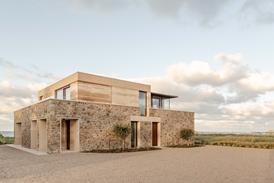- Home
- Intelligence for Architects
- Subscribe
- Jobs
- Events

Events calendar Explore now 
Keep up to date
Find out more
- Programmes
- CPD
- More from navigation items
RIBA calls on practices to report their progress on diversity targets

Institute launches Inclusion Charter for registered members this week
RIBA has called on architects and practices to commit to setting diversity targets and publicly reporting on their progress to drive inclusivity within the profession.
Urging architects to sign up to its newly launched Inclusion Charter, the body has set out five actions it says are needed to address “the urgent need for inclusion in the architecture profession and wider construction industry”.
It follows recommendations from RIBA’s former president Jack Pringle in August for all RIBA council members to do unconscious bias training to counter what he called “subtle prejudices” within the architectural profession.
…
This content is available to registered users | Already registered?Login here
You are not currently logged in.
To continue reading this story, sign up for free guest access
Existing Subscriber? LOGIN
REGISTER for free access on selected stories and sign up for email alerts. You get:
- Up to the minute architecture news from around the UK
- Breaking, daily and weekly e-newsletters
Subscribe to Building Design and you will benefit from:

- Unlimited news
- Reviews of the latest buildings from all corners of the world
- Technical studies
- Full access to all our online archives
- PLUS you will receive a digital copy of WA100 worth over £45
Subscribe now for unlimited access.






